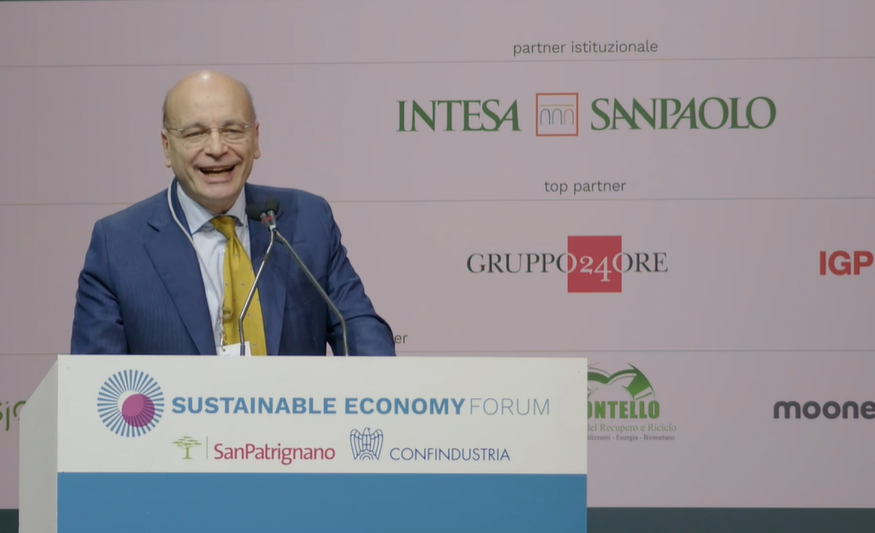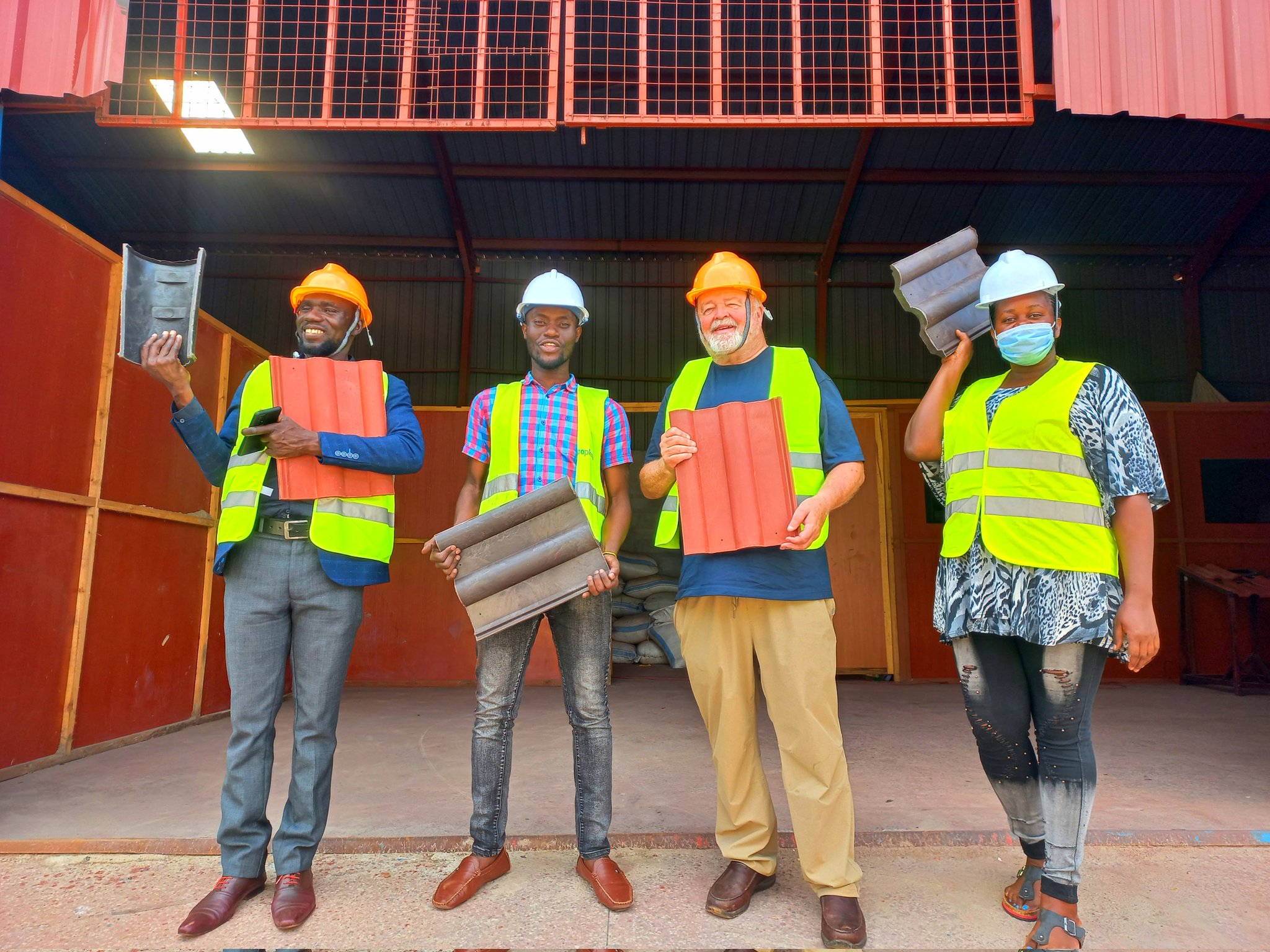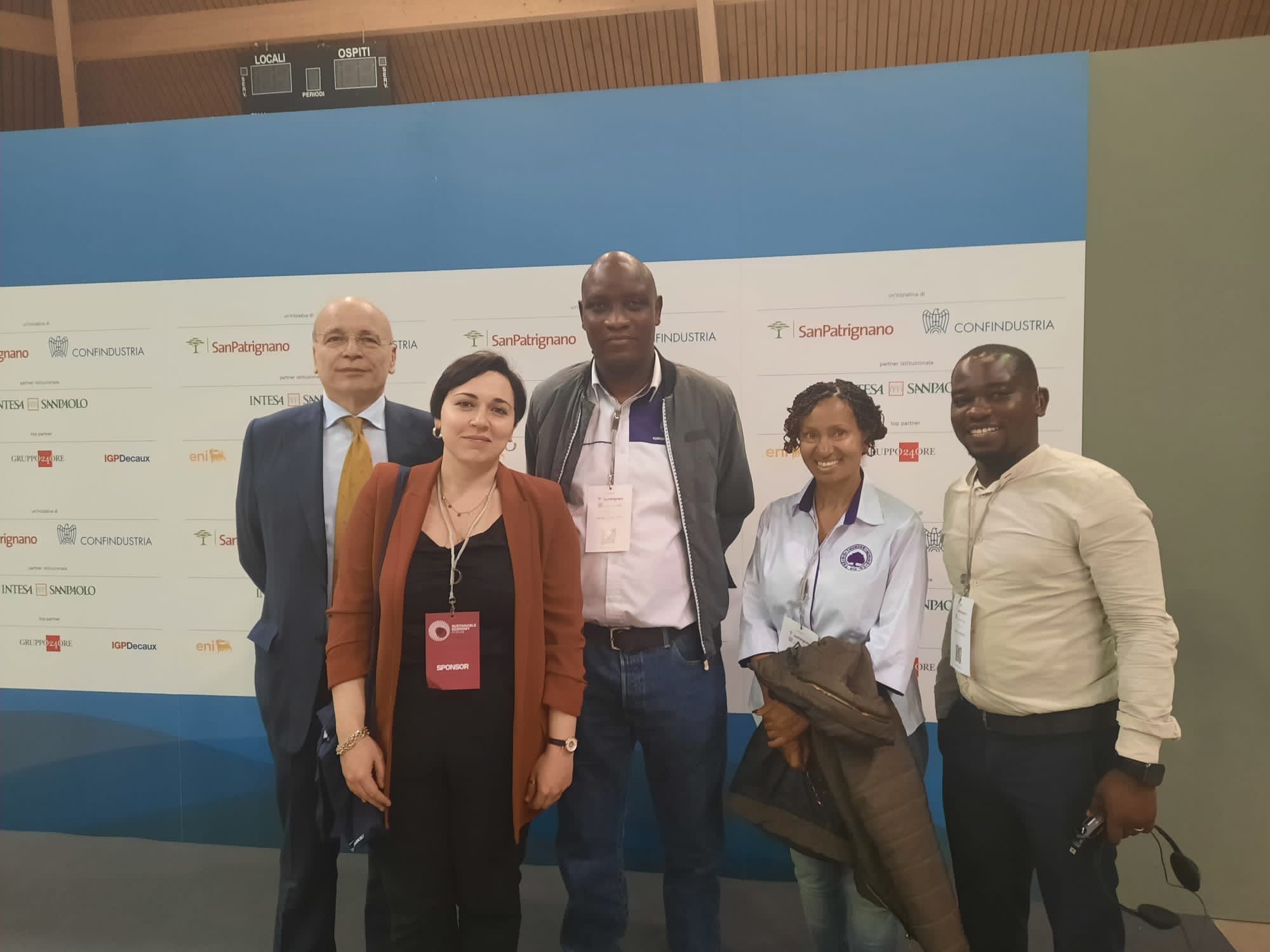
The 13th of April 2023, the fifth edition of the Sustainable Economy Forum was held at the Community of San Patrignano. This international event was promoted by San Patrignano and Confindustria with Intesa Sanpaolo, it aimed at promoting the exchange of experiences between entrepreneurs, economists and policy-makers to offer long-term solutions to the most pressing global issues.
This year, special attention was given to reflection and sharing of experiences on the key issues of sustainability and economic, but also on environmental and social responsibility in the most diverse sectors. That’s why the Forum has been the occasion for E4Impact to announce the winners of the Gian Marco Moratti Award, the prize established by the Foundation for its entrepreneurs, in memory of the Italian entrepreneur Gian Marco Moratti and his commitment for young people.

The award is a special opportunity to raise awareness about the role of E4Impact’s African entrepreneurs in generating a long-term impact and in enhancing sustainable development on the continent. Awarded annually and now in its fourth edition, the Gianmarco Moratti Award fully reflects the spirit of E4Impact: to support and enhance the start-up and growth of new enterprises in Africa.
The 2023 edition recognises, in particular, the 2 African companies among the E4Impact community, that have distinguished themselves in terms of environmental responsibility. Two tracks have been identified: Track 1 – Best sustainability policies or practices (for the company that has best implemented or improved environmentally sustainable strategies, materials, best practices and processes); Track 2 – Best eco-sustainable product or solution (for the company that is able to offer the market the most innovative and environmentally-friendly product or service).

The two winners that stood up among the participants of this year are: Esther Wanjiru Kimani, from Kenya, founder of Farmer Lifeline Technologies (Track 1 winner) and Franc Kamugyisha, from Uganda, founder of Ecoplastile (Track 2 winner).
Through her business, Esther ensures farmers use environmentally friendly farm chemicals and fertilisers. Why she started her business? Because of her past!
“I grew up doing farming on the slopes of Nyandarua (Kenya), where my family, just like any home and land-based community, relied on agricultural activities for an income.” affirms the entrepreneur. “However, I noticed that delayed identification of pests and diseases, use of wrong farm chemicals and the change in climate led to great losses of up to 40% of our total produce.”

It was precisely to solve these problems that the entrepreneur, with her team, came up with a solution: a solar power device. This device is mounted in the farm and its camera continuously scans and takes images of the crops. In the event of a pest or a disease, the farmer is alerted through an SMS on the mobile phone. In the event of a high-risk pest, such as a drought locusts, it not only notifies the farmer, but also agricultural extension offices in the region for quick and broad action.
In addition to sending the alert, the device also updates the information onto Farmer Lifeline Technologies’ data dashboard for future policymaking and decision-making.
The device’s texts also add recommendations to the farmers. These recommendations are of health-friendly, carbon-negative and affordable fertilizers, that they can find within their localities. With this, Esther’ s company assists farmers towards adapting to climate change through behavior change.

At the moment, Farmer Lifeline Technologies is working to improve the radius of the device and make it more performing, but it’s also trying to enroll more users, as well as fostering partnerships to add more farmers to its ecosystem: “We’ll be reaching 25,000 farmers by the end of next year” stated the entrepreneur. “So far we are working with 235 farmers and they have been able to increase their by yields 30% and reduce their losses by 40%.”
Totally different is Franc Kamugyisha’s business, that for 20 years has been facing the issue of waste disposal.
The world generates 2.01 billion tonnes of solid waste annually, and at least 33% are not managed in an environmentally safe manner. With Ecoplastile, Franc wants to digitize the Waste Supply Chain and closing the loop by manufacturing material saving roofing tiles for the building industry across Africa.

Ecoplastile, indeed, offers Africans a way to monetize the waste using technology: it provides an integrated platform to connect waste collectors and waste producers to ease collection.
In addition to that, the company recycles waste material into sustainable and eco-friendly products that, then, are sold to the construction sector. Examples of this are roofing tiles for construction and plastic flakes as feedstock for recycling companies.
So far, Ecoplastile has saved more than 90 k of CO2, recycled more than 450 MT of waste materials and created more than 180 green jobs (75% of which are occupied by young women).
Each of the winners has received a cash prize to invest in their business, as well as international visibility and privileged access to developing partnerships with European companies. This will enable them to keep on with their contribution to UN’s SDG #8
“Decent work and economic growth” but also to SDG #12 “Responsible consumption and production”, which are of primary important also for E4Impact mission.

The Sustainable Economy forum, has been also the occasion to host two other E4Impact entrepreneurs from Kenya, who have distinguished themselves for the positive impact of their businesses on both communities and the environment: Moses Wachira and James Nyamai. They have been invited to give a speech and present their companies.
Moses is the co-founder of The Big Thunder Mining Co., Kenya’s market leader in the sale of macadamia nuts, which are then processed into oil and other cosmetic products marketed worldwide. The company has a particular focus on eco-sustainability, as it ensures that its waste product (the shells) is not wasted, but instead becomes biomass useful for the creation of clean energy.

James, on the other hand, is the founder of Bioafriq Energy, a company that produces eco-friendly, zero-emission pellets, marketed for both domestic and business use. The pellets are produced from agricultural waste or biomass and thus guarantee a safer and healthier environment.
Esther, Franc, Moses, James and all the other E4Impact entrepreneurs are a true example of a changing Africa, an Africa that is growing and that is striving everyday to make this growth being sustainable, both for the environment and the community. We can’t be more proud of our entrepreneurs, of their creativity and the innovative solutions they keep on come up with.
